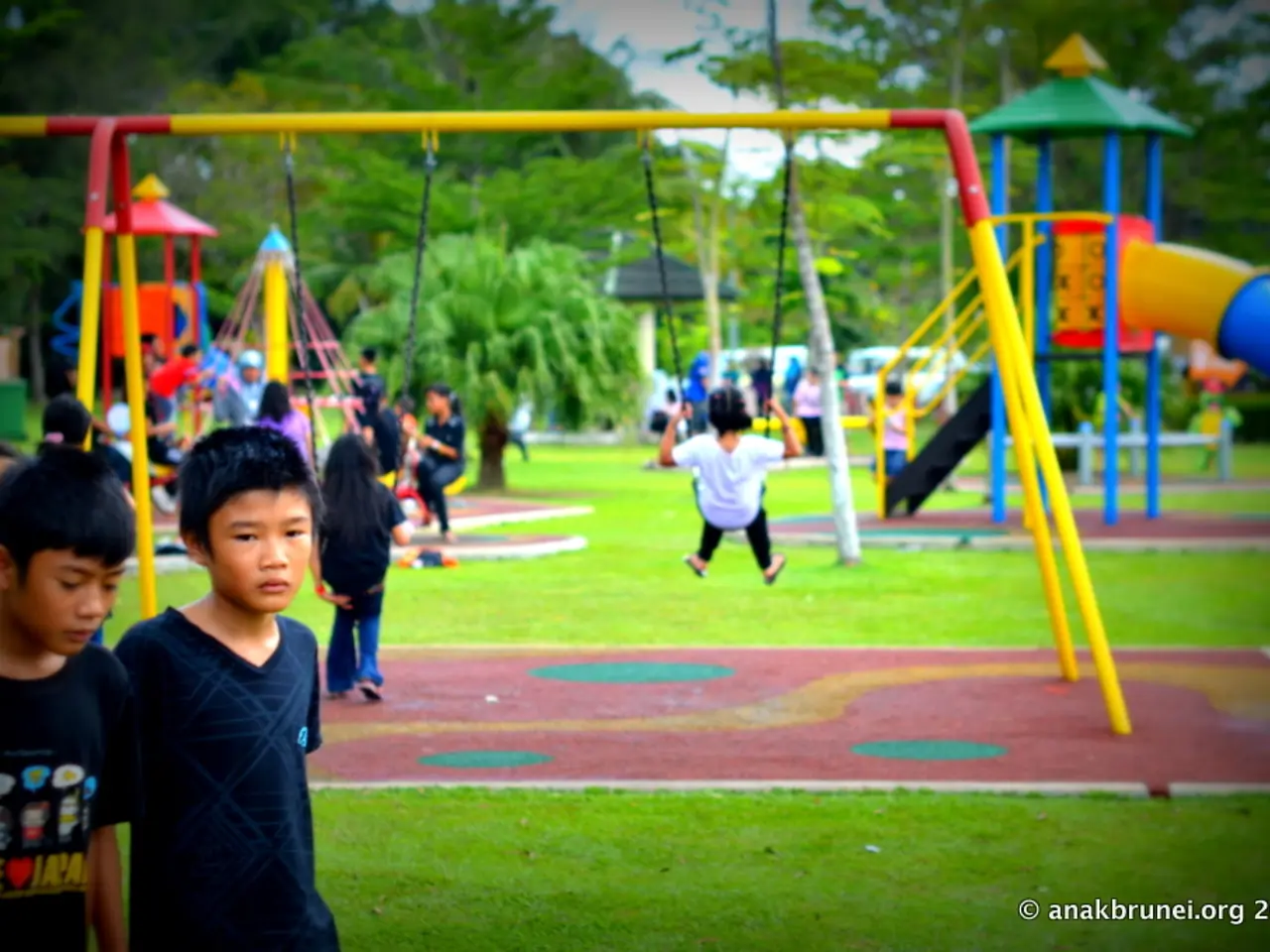Seven External Role-Playing Actions Enhancing Emotional Intelligence, Developing Practical Abilities in Reality
Emotional Intelligence Development in Children Thrives in Outdoor Play
Outdoor activities are not just about running and jumping, they can also be a rich environment for children to develop their emotional intelligence. Forest Council Meetings, for instance, provide collaborative outdoor spaces where children practice democratic decision-making and leadership skills while fostering empathy, active listening, and emotional regulation.
Campfire settings, a natural circle of connection, offer a unique platform for children to share their experiences. Ordinary storytelling transforms into a powerful social awareness practice as children learn to recognize emotions in others and respond with compassion. Encouraging supportive responses after each story by asking listeners to share one thing they understood about the storyteller's feelings further builds empathy.
Seven outdoor role-playing activities have been identified as particularly effective in promoting emotional intelligence development in children. These include:
- Pretend doctor/nurse and patient, where children practice empathy, perspective-taking, and nurturance.
- Role-playing family or community helpers like teacher, firefighter, or shopkeeper, which encourages children to adopt different social roles, developing empathy, social negotiation, and communication skills.
- Resolving conflicts in role-play scenarios, which fosters negotiation, sharing, and conflict resolution abilities.
- Imaginary restaurant or store play, which builds confidence, emotional expression, and social communication.
- Superhero or fantasy role-play, which requires cooperation, perspective-taking, and emotional regulation.
- Negotiating group activities or games outdoors, which develops social skills like cooperation, compromise, and empathy.
- Storytelling and acting out feelings in nature, which enables children to identify, regulate, and share feelings in a safe environment.
These activities use imaginative play and social interaction in an outdoor setting to promote emotional expression, empathy, self-regulation, social negotiation, and perspective-taking—key components of emotional intelligence. Using costumes, props, or nature elements can enhance engagement and emotional processing.
Emotional intelligence growth through these activities is supported by children's opportunity to experiment with emotions safely, experience social problem-solving repeatedly, and reflect on their feelings and behaviors.
Other innovative outdoor activities include Emotional Weather Mapping, Nature's Theater, Adventure Quest Storytelling, Outdoor Mindfulness Theater, Animal roleplay, using emotion-focused prompts during storytelling sessions, and sharing personal experiences using the campfire's warm glow. These activities further enrich the outdoor play experience, fostering emotional intelligence development in children.
In this context, integrating elements of lifestyle, home-and-garden, education-and-self-development, and sports can enhance the outdoor play experience for children, promoting emotional intelligence development. For instance, creating a role-playing 'home' or 'hospital' scenario with homemade props might help children practice empathy and nurturance, while a sports competition can foster teamwork, sportsmanship, and negotiating skills, all of which contribute to emotional intelligence. Similarly, storytelling around a campfire can be transformed into an outlet for self-development, as children learn to recognize emotions, empathize, and respond compassionately, much like in an education-and-self-development setting.




